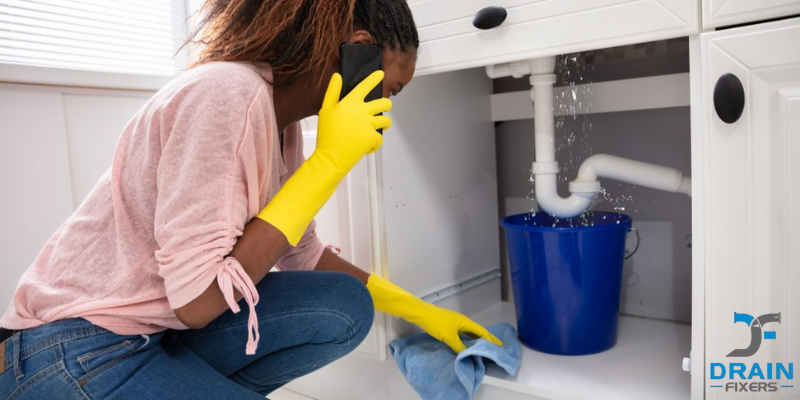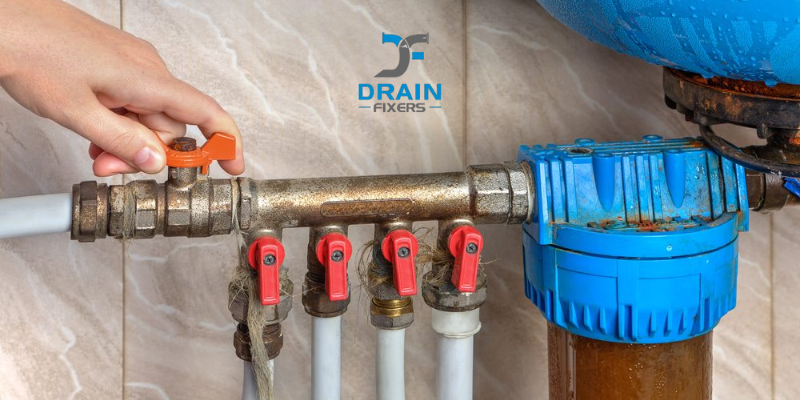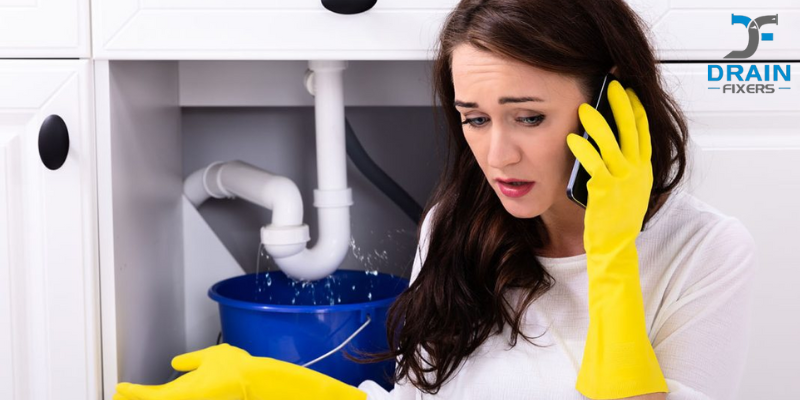
A water heater replacement, clogged toilet, and a leaking faucet replacement are common issues that plumbers fix. You can schedule and wait so that these issues can be resolved. However, you have a plumbing emergency when you have water gushing out of a pipe. For this, you cannot wait for the plumber to come to help you fix this issue so that it does not get worse.
Things To Do in Plumbing Emergency
The key to having things in order is to know what to do in case of a plumbing emergency. This will ensure that damages are minimized and the needed repairs are done immediately. Here are some of the things to do in a plumbing emergency.
1. Shut off the water supply

The first and most important thing to do whether there is a leak in a pipe, toilet, or faucet is to turn off the water. This will prevent the mess from getting much by keeping away extra water. If you can identify the source of the leak, find the nearby shut-off valve. Most toilets’ water supply is sourced from the wall behind the toilet. Look for the handle and turn it off to stop the water.
You will find shut-off valves beneath the sink as well. Just as with the toilet valve, shut it off. The cutoff valve can be stuck in some instances so you should not use a wrench to turn it. Use your hand so that the valve does not break to prevent the issue from getting worse.
Go ahead and turn off your home’s main water supply if you cannot find the shutoff valves of the leaks. This supply unit is commonly in a utility room or the basement. If you find the lever that controls the water in any of these units, turn it off.
Accessing the cause of the issue has a different level of difficulty. The nature of the issue may be obvious or the assessment of an expert may be required. If the issue is a leak, you can wrap old towels around it or stifle it by using a plumber’s tape. This is a temporary solution until you come up with a permanent solution or until a plumber arrives.
2. Call a plumber

Call a plumber as soon as you have turned off the water supply. Plumbing issues are common and most expert plumbers offer emergency services. You can look in a local phone book or search online to find a plumber close to you. Call and explain all you noticed. They might give instructions to help mitigate the damage before they get to your place.
The professional plumbers may get to your house within an hour or in the next three hours depending on their availability. If you cannot wait because the issue is severe then you can keep calling other plumbers to know who is available at the moment.
Once you are done with this, save a plumber’s contact information on your mobile device or in a journal before the next plumbing emergency. Doing so will save you from going through the trouble of searching around. It is always calming to know who to call in situations like this.
3. Work while you wait
Proceed with doing some preventive work once you are off the phone. It is better not to sit idle especially when it comes to pooling or leaking water. If you experience a devastating leak or overflow, get some towels and begin mopping the floor. Ensure that you wear protective equipment like goggles and shoes if you have to deal with wastewater.
Take valuable possessions out of the way as it does not take long for water to cause damage to your home. Additionally, work as safely and quickly as you can to mitigate the damage. If the area is safe enough, you can speed up the drying process by using a dehumidifier or a fan. Air will circulate better and mold growth will be prevented when you use a fan.
Meanwhile, do not allow pets and children in the area where there is a plumbing emergency. Doing this gives you the space to work and helps keep children and pets away from harm. It will always prevent them from spreading water around the house and space you are trying to clean and dry.
4. Evaluate outlets and electrical equipment
Check to see if there is any standing water in your home and if it is near anything electrical. There could be a shock risk if the water gets to the outlet. It is advisable to turn off your main circuit breaker in cases of severe flooding. This will help prevent any electrical risk.
Additionally, never enter water that you suspect is electrically charged. Seek the advice of a plumber to know what is best for you to do in this situation. They may ask you and your family to leave your house for safety reasons. Ensure you follow their advice and evacuate with your pets as well.
5. Stay calm
Staying calm in the event of a plumbing emergency may be the hardest thing to do. Panicking during a crisis is normal but you cannot accomplish anything with it. Know which plumber to call and where your main shutoff valve is in the case of a plumbing emergency. Your insurance can cover some of the repairs if you have homeowners’ insurance.
Putting these things in place can help you remain calm. Being prepared is the best solution to plumbing emergencies. Make sure that everyone living in your house knows where the main water shutoff is. That way, you will get more help when needed.
Conclusion
Plumbing emergencies can happen even though they are never welcome or expected. You should be able to mitigate any damage if you know what to do in plumbing emergencies. Pay attention to emergency triggers and keep a list of professional plumbers in your area in case of an emergency.

